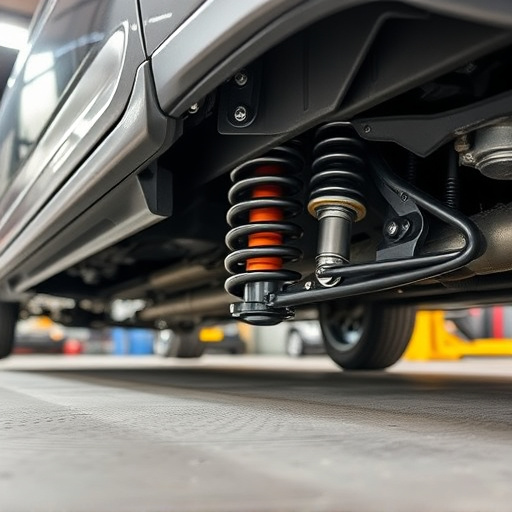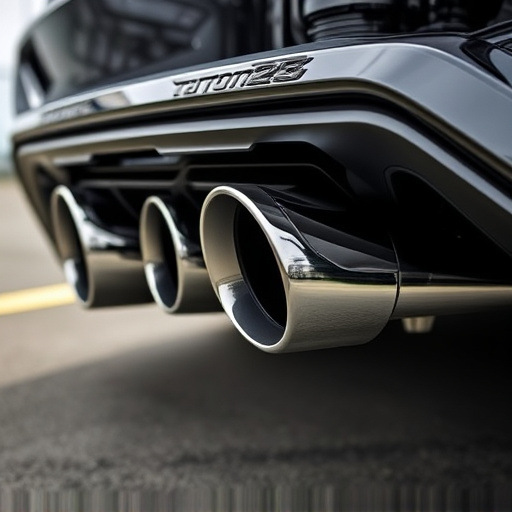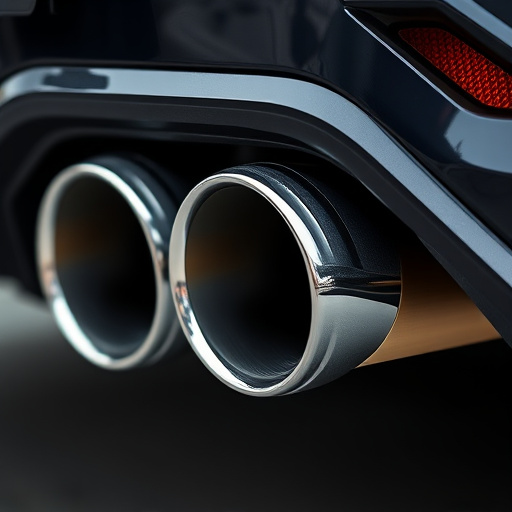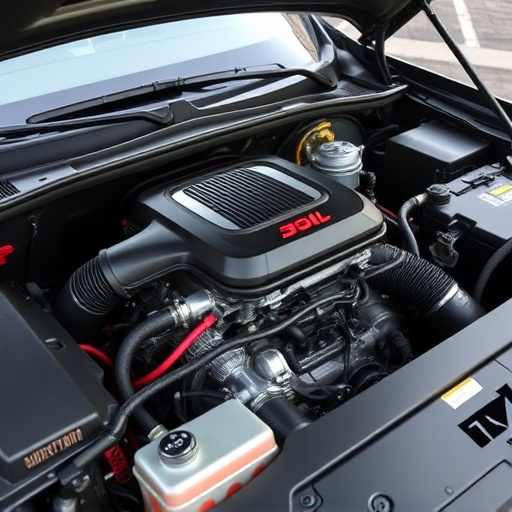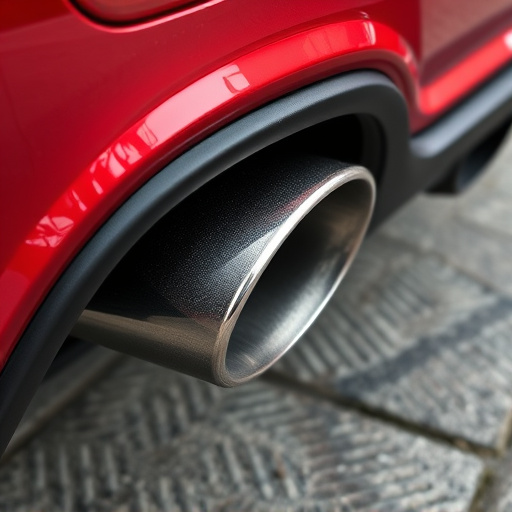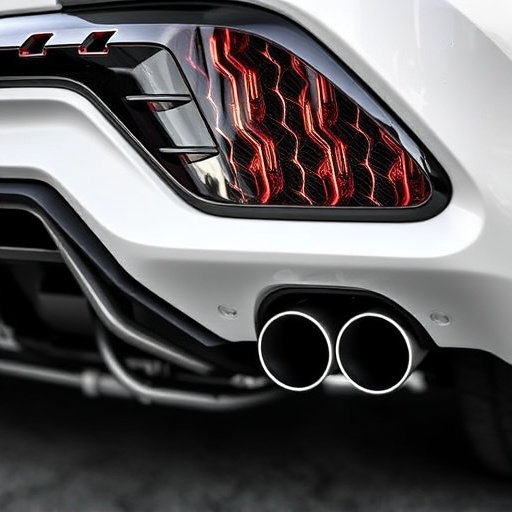Dyno tuning is a precise method using dynamometers (dynos) to evaluate and optimize vehicle performance after aftermarket upgrades. Technicians measure power, torque, and performance characteristics before and after modifications, ensuring high-performance parts, intake systems, and exhaust tips are effective. This data-driven approach provides insights into peak horsepower, torque curves, and fuel injection settings for optimal performance tuning and guiding future modification decisions.
Dyno tuning, a meticulous process of fine-tuning vehicles on a dynamometer, is transforming the aftermarket car modification landscape. This advanced testing method verifies the performance gains from upgrades, ensuring optimal results. From engine adjustments to exhaust systems, Dyno tuning provides accurate measurements, allowing enthusiasts and mechanics to maximize their investments. Discover how this science-backed approach enhances power output, improves efficiency, and confirms the effectiveness of aftermarket upgrades, revolutionizing the way we optimize our rides.
- Understanding Dyno Tuning Basics
- Measuring Performance Gains Accurately
- Maximizing Aftermarket Upgrade Benefits
Understanding Dyno Tuning Basics
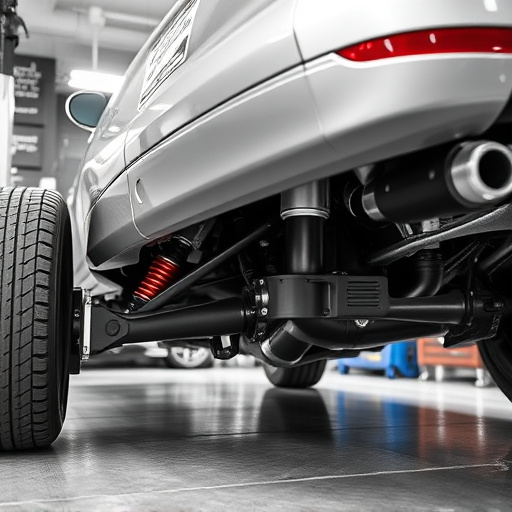
Dyno tuning is a process that verifies gains from aftermarket upgrades on vehicles. It involves using a dynamometer (dyno), a machine that measures the power and torque output of an engine, to compare performance before and after modifications. This method ensures accurate measurements and provides data-driven insights into the effectiveness of upgrades like high performance parts, intake components, and muffler tips.
By connecting the vehicle to a dyno, technicians can analyze peak horsepower and torque figures, as well as the power curve, to understand how each upgrade contributes to overall performance gains. This process is crucial for fine-tuning engine settings, optimizing fuel injection, and ensuring that high-performance parts deliver their promised benefits. Dyno tuning helps in making informed decisions about future modifications, ensuring that every upgrade brings tangible improvements to the vehicle’s performance.
Measuring Performance Gains Accurately
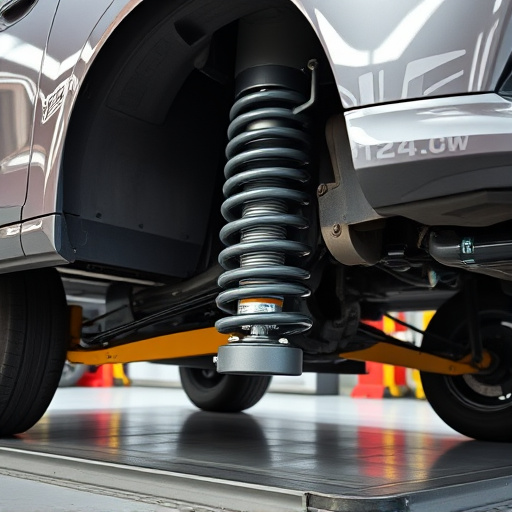
Accurately measuring performance gains from aftermarket upgrades is paramount when employing dyno tuning techniques. This process involves rigorous testing under controlled conditions to ensure precise data collection. Dyno tuners meticulously assess changes in horsepower, torque, and engine efficiency before and after modifications, such as installing high-flow exhaust mufflers or upgrading brake components. By comparing these metrics, they can verify the effectiveness of each upgrade and make informed adjustments.
Moreover, modern dyno tuning relies on sophisticated equipment and software to capture subtle performance variations. This includes advanced sensors that monitor various engine parameters in real time, allowing for a detailed analysis of how modifications impact overall performance. With such precise measurements, car enthusiasts and mechanics can confidently optimize their vehicles’ capabilities, ensuring peak performance gains from every aftermarket upgrade.
Maximizing Aftermarket Upgrade Benefits
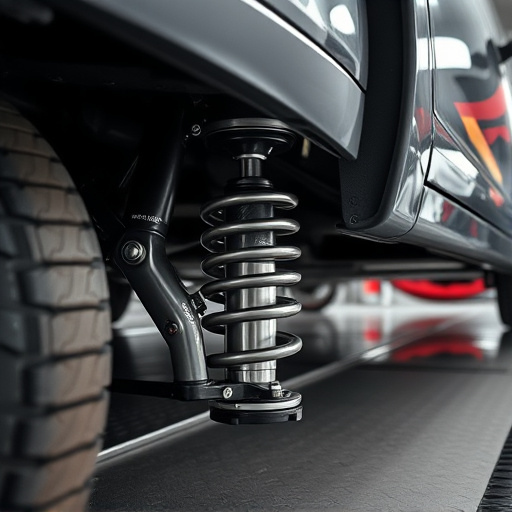
To maximize the benefits of aftermarket upgrades, such as suspension kits or improved brake components, dyno tuning plays a pivotal role. This process involves meticulously testing and calibrating various car systems to ensure optimal performance. By utilizing a dyno, mechanics can accurately measure gains in horsepower, torque, and overall vehicle performance after installing new parts. This data-driven approach allows for precise adjustments, ensuring that each upgrade contributes meaningfully to the car’s overall capabilities.
Additionally, dyno tuning helps identify potential synergies between upgrades. For instance, a new suspension kit might enhance handling dynamics, but without proper tuning, its benefits could be obscured. Through controlled testing, mechanics can uncover these interactions, fine-tuning the vehicle for peak performance and ensuring that every aftermarket component works in harmony to deliver noticeable improvements in driving experience and efficiency.
Dyno tuning, with its precise measurement capabilities, is a powerful tool for verifying the performance gains from aftermarket upgrades. By understanding the fundamentals and utilizing accurate measurement techniques, vehicle owners can maximize the benefits of their investments. This process ensures that each modification contributes to an enhanced driving experience, proving that dyno tuning is an indispensable practice in optimizing aftermarket upgrades.








